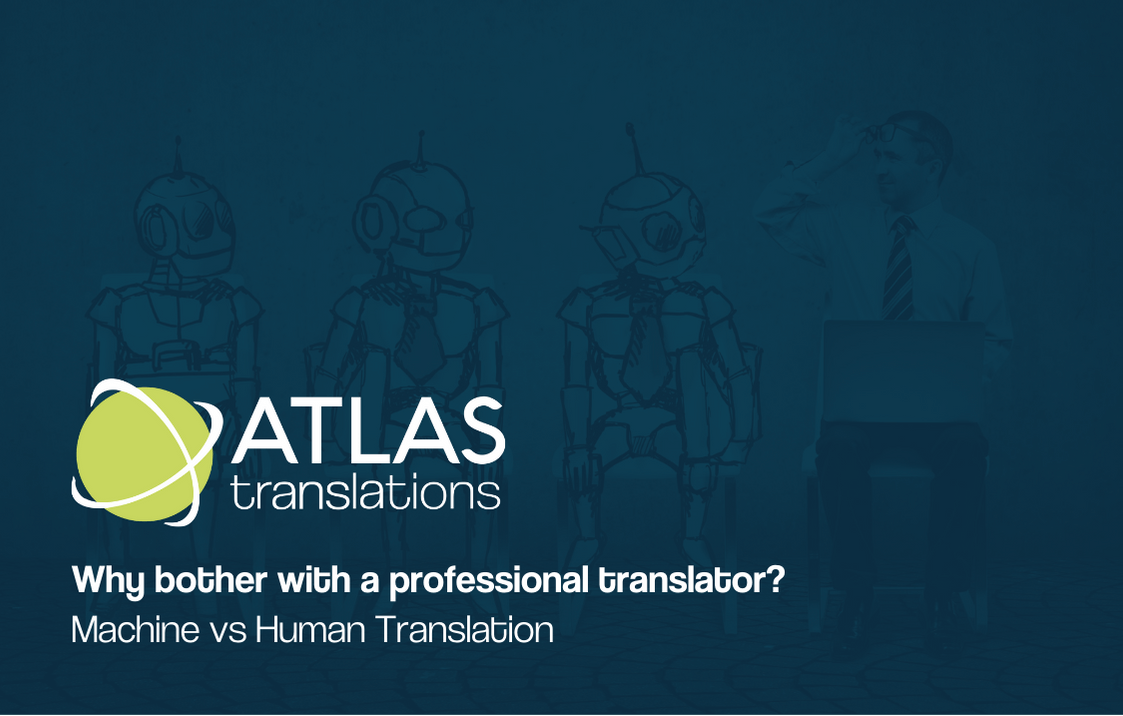Why bother with a professional translator? Machine vs human translation

With the rise of neural machine translation (NMT) and AI models like ChatGPT, we see some chatter about replacing human translation with AI-translated content. Being a translation agency, it’s not a topic we can ignore. If the recent improvements in machine translation (MT) are making you question the need for a professional human translator, here are some things to think about.
Advantages of machine translation
There’s no denying that machine translation apps are incredibly helpful in overcoming language barriers. Which one of us hasn’t used these marvels at least once in our private life? Machine translation has obvious advantages – it’s cheap, fast, and easily available.
Disadvantages of machine translation
Although MT can be a great help in informal situations and when you just need to get the gist of a text, it has its limitations. Contrary to what people may believe, translation is not replacing words in one language with an exact equivalent in another.
Languages around the world vary – they have a different word order, some are highly inflected, and others have grammatical genders. They also keep evolving along with the people who use them. There are many nuances to a language of which an app simply isn’t aware, unlike a professional human translator. As we like to repeat, the context in translation is king.
Machine translation provides a quick output and, depending on the language, can be right a lot of the time. However, it can’t discern the context, tone of voice, or cultural aspects and sensitivities. If you need to translate creative content, official documents or materials that carry important information, relying on machine translation simply won’t do.
We also can’t dismiss the issue of data security and confidentiality – do you know what happens with the information you put into the app and how the data is used? It’s an important detail to consider.
Can machine translation replace human translation?
Honestly? No – and we’re not saying that just because we’re a translation company. AI translation can certainly limit the need for professional human translation in some areas, and it will. But it will not fully replace human translators for quite some time. Unless relating to informal or low-priority materials where quality is not essential, AI-translated content requires a detailed review by a human translator. That’s why MTPE (machine translation post-editing) is becoming more and more popular.
Specialised translation
We strongly believe that there are sectors in which machine translation should be avoided. For example, medical translation or legal translation requires specialised, responsible, and expert knowledge, which only a qualified and experienced human translator can offer.
Good marketing translation or video game localisation is also impossible without a creative translator who is aware of cultural nuances. As good as machine translation can be in many ways, creativity is not its strong suit.
Are you only looking to localise your platform or app? Even then, machine translation can be misleading and ambiguous, which negatively impacts user experience. Ironically, short prompts or one-word buttons can sometimes be the most complicated to translate if the context is unknown!
Ultimately, machine translation can certainly be a helpful tool that makes the translation process more efficient, provided it has a human steering the ship.
Professional human translation services
Here at Atlas Translations, we are strong advocates of professional human translation. If you want to avoid embarrassing translation blunders, accidentally offending your audience, or even worse, giving incorrect information, give us a call or email team@atlas-translations.co.uk.














